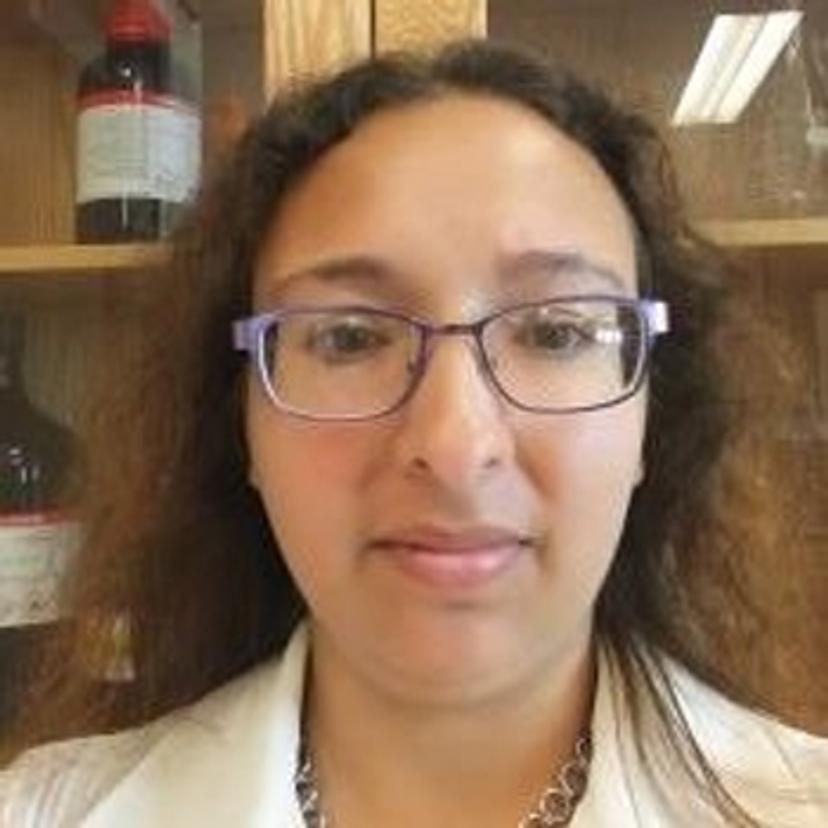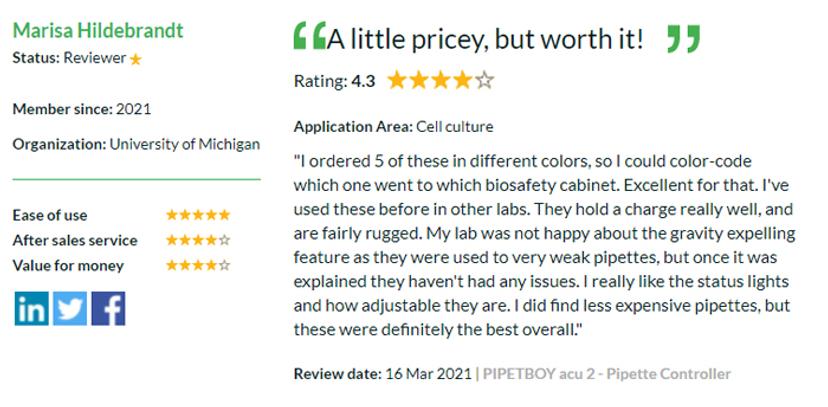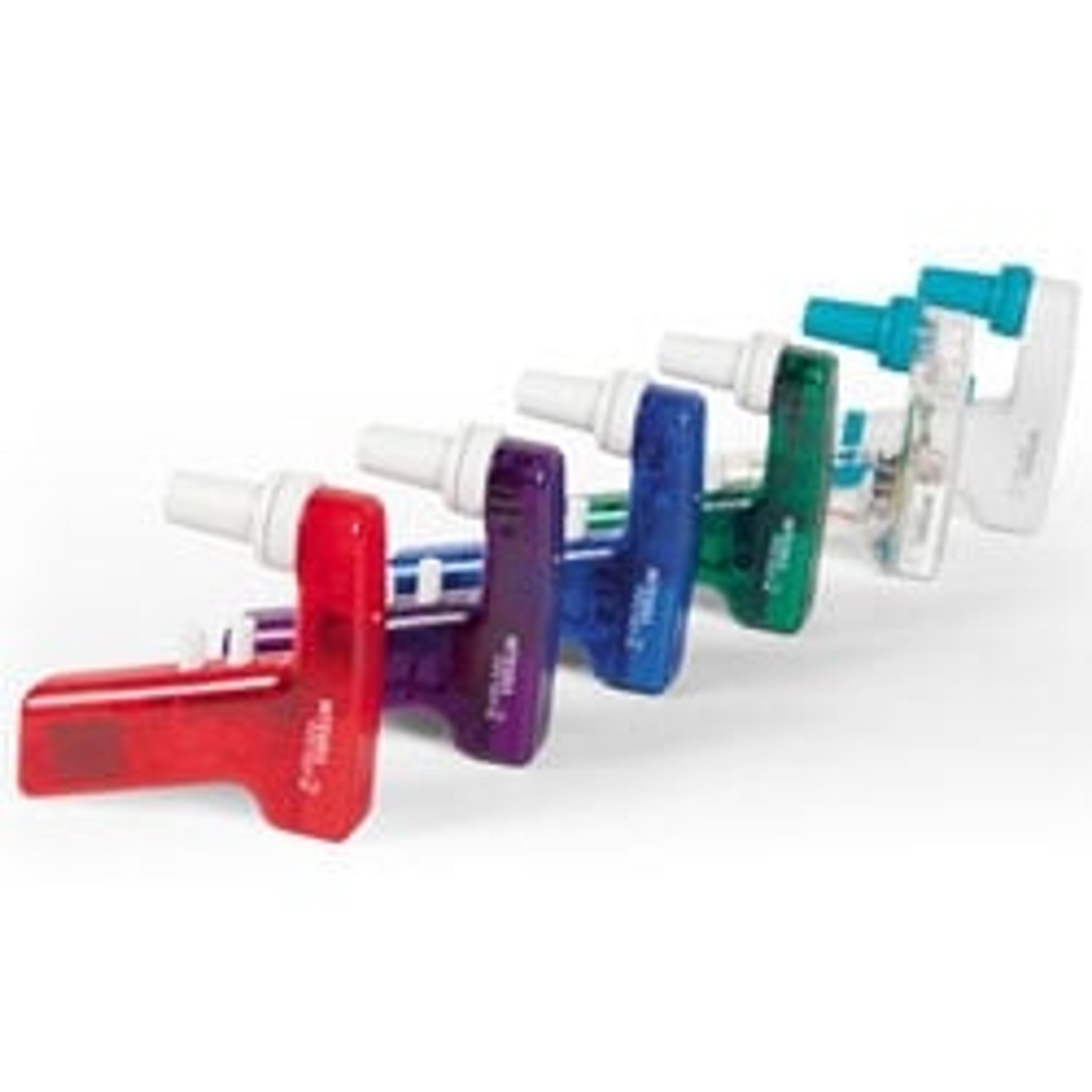'Reviews get down to the reality of a product’s performance’
Lab manager Marisa Hildebrandt emphasizes the need for better communication in science and honest product reviews that ‘get past the hype’
16 Aug 2021


Lab product reviews can change the world by helping other scientists find the best equipment to accelerate their vital work. Here at SelectScience®, we are dedicated to promoting peer-to-peer communication that will make the difference – but we couldn’t do it without our esteemed reviewers. In this regular feature, we put the spotlight on some of our most dedicated and impactful reviewers and find out what inspires them to keep sharing their knowledge with the global scientific community.
We are delighted to introduce this week’s Reviewer in the Spotlight, Marisa Hildebrandt, lab manager at the University of Michigan Medical Center, with over 20 years in bioresearch and extensive managerial experience. Read on as she reveals where her background in scientific research all began and why reviews are so important to help scientists meet their laboratory needs. Marisa also goes in-depth about her thoughts on the current state of science communication, as well as her hopes for its future.
Tell me about your role and your current research
Currently, I am a lab manager in a somewhat large lab at the University of Michigan with 14 members, primarily graduate students and postdocs. We are studying the immunological responses of autoimmune diseases of the skin, such as lupus or scleroderma.
What inspired you to become a scientist?
My dad got me into science at a very young age – around three or four – studying butterflies, worms, birds, beetles and plants. I watched a lot of Nature and PBS, and quickly learned I loved biology. When I was in high school, I read a book called Dragonsdawn that had a character who was a genetic engineer and that solidified my desire to become a scientist.
What have been your biggest challenges as a scientist?
My biggest challenge has been the transition from benchwork to a primarily managerial position. It is helpful to know the bench basics to be able to be a better manager, but I miss the experimentation.
What do you think we can learn about the need for clear science communication post-pandemic?
I think we’ve learned that we need to recover the public’s trust in science. We need to clearly explain the methods and goals of science, how it works, so that people don’t think that a constantly evolving statement means that it is wrong. Rather, that is a sign that we are always learning new things and refining our definitions.
Why do you want the future of science communication to look like?
I would like to see greater clarity in science communication. That means both in statements to the public and in scientific journals. Statements to the public must be made in clear language with all necessary caveats. Scientific articles should be in clearer, less jargon- and acronym-heavy text and focus more on novel insights, less on safe gleanings of small information.

What are your future goals as a scientist?
My future goals are to find a position where I spend less time running the lab and more time doing wet work. I’m hoping to eventually go back and do my Ph.D.
Would you like to feature in our Reviewer Spotlight? Write your review here to be in with a chance >>

